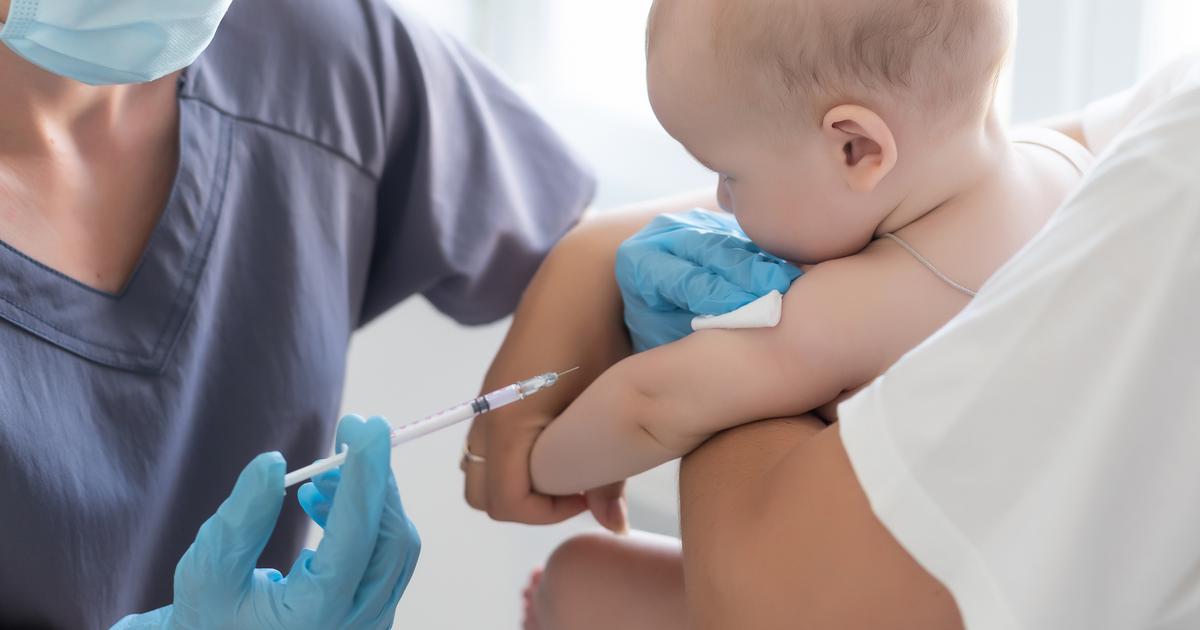The world leader in immunization, Israel has become the human laboratory to which the eyes of the entire planet turn.
Do Covid-19 vaccines limit the transmission of the virus?
Initial data provide rather encouraging answers to this question, even if the health situation in the country shows that nothing is certain.
According to figures compiled by the reference site OurWorldInData, 25.6% of the Israeli population have received at least one dose of Pfizer / BioNTech or Moderna vaccine against Covid-19, and 5.5% have received both doses recommended by the manufacturer.
In detail by age group, more than 70% of people over 60 have already had at least one injection.
The campaign began there on December 19, eight days before France where less than 1% of the inhabitants were vaccinated.
Between 33 and 60% less infection?
On January 12, health insurance group Clalit reported that infections fell 33% two weeks after the first dose of Pfizer vaccine was injected.
These partial results were taken from a study, still ongoing, involving two groups of 200,000 patients over the age of 60.
Some had been vaccinated, and not others.
This would mean that the product is not only effective against the onset of symptoms or even a severe form of the disease, but also against infection and transmission.
Exclusive: an initial analysis by Israel's largest healthcare provider Clalit shows a 33% drop in covid-19 infections, 14 days after 1st dose.
Pfizer phase 3 trial checked for symptomatic disease only.
This analysis was done on over 200,000 people 60+.
Done by @RanBalicer
- נדב איל Nadav Eyal (@Nadav_Eyal) January 12, 2021
Sharon Alroy-Preis, the head of the public health service at the Ministry of Health, announced that the vaccine reduced infections by about 50% two weeks after the administration of the first dose, reports The Times of Israel .
Other work, conducted by health care provider Maccabi, even resulted in a score of 60%.
READ ALSO>
Covid-19: the incredible mass vaccination campaign carried out by Israel
“For the moment, we know that the vaccine reduces the risk of being sick, but we do not know in what proportion it reduces the risk of being infected.
These first data confirm that there will be an impact, and there are good things for it to be even higher with two doses, ”says the Parisian epidemiologist and public health specialist Michael Edelstein, professor at Bar-Ilan University, Tel Aviv.
"The vaccine could pass healthy carriers, that is to say, who are not sick but still contaminating.
But it is quite unlikely that we will detect a lot of virus in people who have received the two injections, ”adds immuno-oncology researcher Eric Billy.
Time between the two doses retained
Israel has also decided to keep the time between the two doses recommended by the manufacturer, namely three weeks for Pfizer / BioNTech and four weeks for Moderna.
An experiment conducted by the Chaim Sheba Medical Center seems to support this choice.
102 employees were serologically tested a week after receiving the second dose of Pfizer vaccine, and 100 of them had antibody levels 6 to 20 times higher than a week earlier.
"This means that the vaccine works wonderfully," said Professor Gili Regev-Yohai, quoted by the daily Haaretz.
Conversely, some countries including France have already relaxed this constraint.
The UK, for example, plans to go up to twelve weeks between the two doses.
But their hope of achieving an 89% reduction in infections after a single injection is deemed "very optimistic" by Ronni Gamzu, director of Sourasky hospital in Tel Aviv.
"If you run out of vaccines, it's a good idea [to delay the second dose]," he nevertheless agreed with Sky News.
Several European countries are indeed confronted with vaccine supply tensions.
This does not appear to be the case with Israel, which has entered into an agreement with Pfizer providing for faster deliveries of doses in exchange for access to medical data.
Still, 12,400 people have tested positive in Israel after being vaccinated, so 11,000 less than two weeks after the first dose and 69 after the second, the Minister of Health said on Tuesday.
As Eric Billy points out, "if you are vaccinated, we can still find the virus so you can be positive, but that does not mean that you will be contagious or symptomatic".
No definite impact on the epidemic yet
For the moment, the expected efficacy of the vaccine is not visible on the curves of the epidemic.
On average over the past week, 8,000 new daily cases are currently recorded every day in Israel, twice as many as three weeks ago.
Relative to the population, it is triple the number in France.
As for the positivity rate, it exceeded the 10% mark on Monday, for the first time in more than three months.
Morning essentials newsletter
A tour of the news to start the day
Subscribe to the newsletterAll newsletters
In addition, more than 1,000 people are in critical condition on Wednesday, a number that has been stable for five days.
In detail, "after two weeks of an increase of about 30% in the number of critically ill people aged 60 and over," the increase was "only 7% last week," said Monday on Twitter. researcher Eran Segal.
“Promising but too early to say (if the vaccine is effective), maybe it's just containment,” he added.
These restrictions have been extended until January 31, the government of Israeli Prime Minister Binyamin Netanyahu announced on Tuesday.
Vaccine effect?
~ 40% of all 60+ years old are now 2 weeks after 1st dose
After two weeks of ~ 30% increase in critically ill aged 60+, last week up only 7%
In 40-55 years old the increase was similar all 3 weeks (~ 22%)
Promising but too early to tell, may just be the lockdown pic.twitter.com/0auG5bixVV
- Eran Segal (@segal_eran) January 18, 2021
This still uncertain situation does not surprise the experts.
On the one hand, three quarters of the population have not yet received any dose of vaccine and therefore cannot expect any protection.
On the other hand, around 30 to 40% of people infected have been infected with the more contagious British variant, according to official projections.
"The increase in new cases is mainly taking place in unvaccinated people and is accentuated by this strain which spreads more quickly", underlines Michael Edelstein.
READ ALSO>
Coronavirus: is the South African variant at risk of escaping the vaccine?
These variants, if they were to multiply and spread, could also reduce the effectiveness of current vaccines.
While scientists have little concern about the strain identified in England, there is less certainty about the South African variant, for example.









